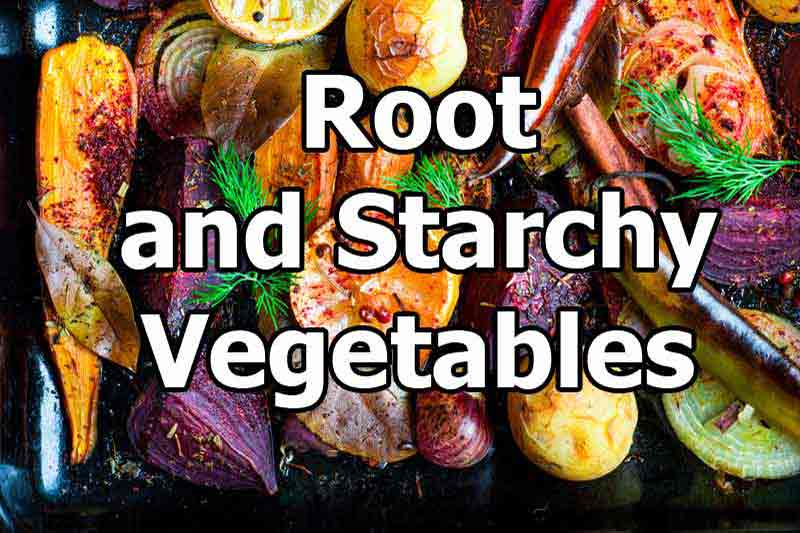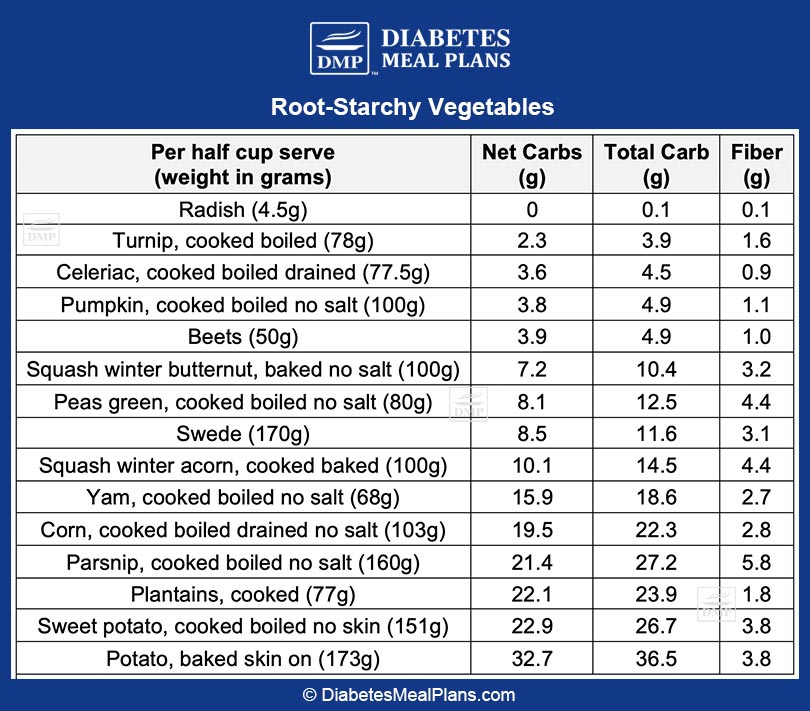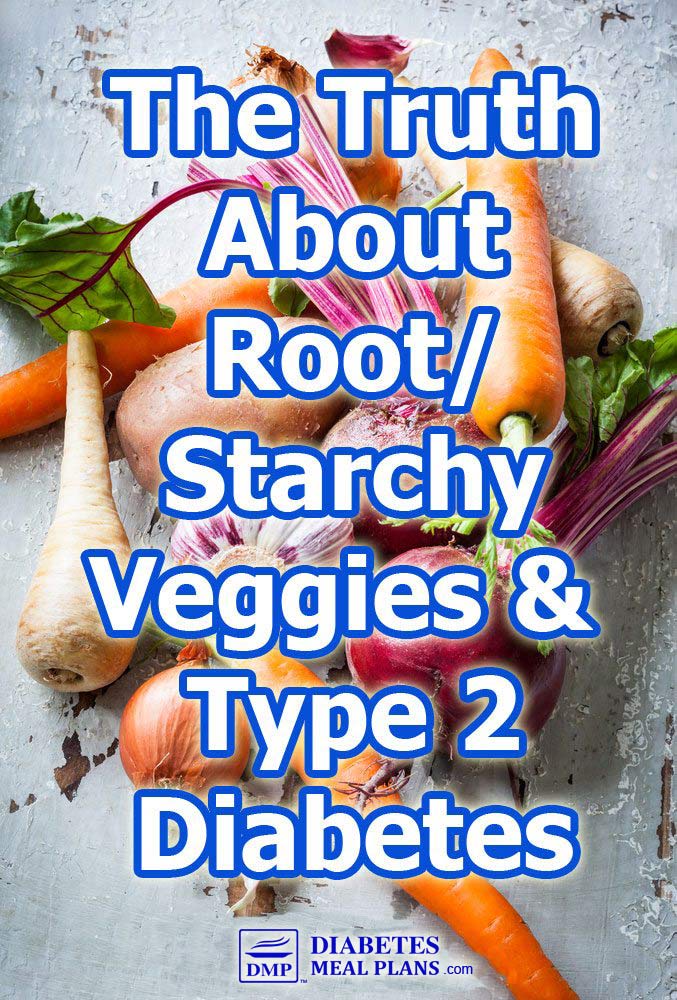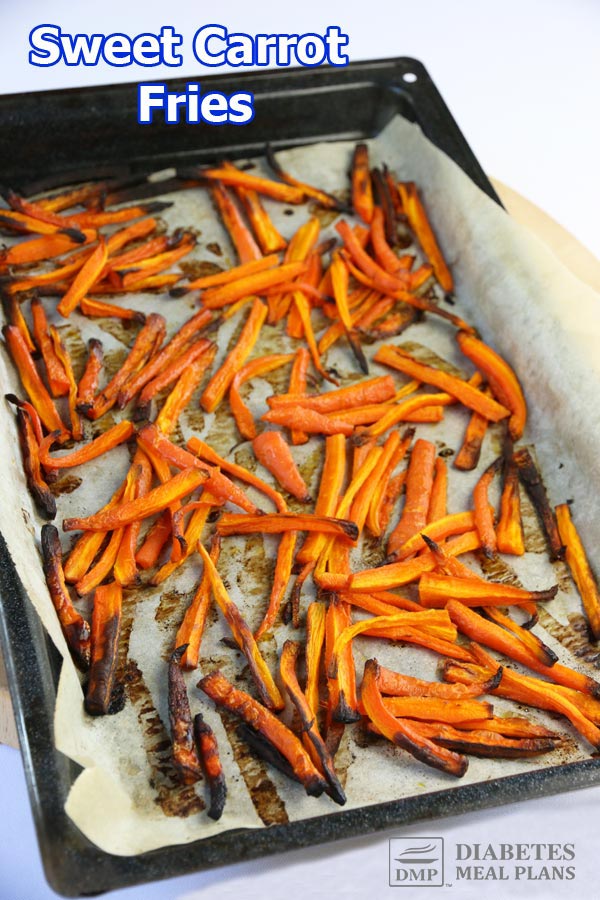
There are a whole range of root vegetables and most of them are also starches – a type of carbohydrate. Basically, some plants store glucose as starch – giant chains of sugars.
So when it comes to root vegetables and starches, are they safe for type 2 diabetics to eat or not?
Well, let’s dig in and explore the facts.
Root Vegetables Nutrition Facts

As you can see the veggies from swede up are relatively low in carbs, while the ones downwards are high in carbs – potatoes being the highest.
Glycemic Index of Root Veggies
Glymeic index (GI) is a valid measure for higher carb foods but just remember the amount of carbs you eat is the most important thing that influences blood sugar and A1C.
GI is a measure of how fast different food affects blood sugar levels. Anything below 55 is considered a low GI and anything above that is considered high GI. The lower the GI the better it’s going to be for you if you’re diabetic, the higher…well the worse it is.
“Root vegetables and tubers are relatively concentrated sources of sugars and starches and tend to contain only small amounts of fiber. This can be problematic for diabetics because they can produce a large glycemic response in situations when they are not combined with high fiber foods…The lowest GI vegetables are yams, carrots and sweet potatoes with GI values of 38, 47 and 55 respectively. High GI root vegetables include potatoes (GI of 60-90), parsnip (97), rutabaga (71), and beets (65).”
As you can see, yams and carrots are really your best 2 options here, followed by a small amount of sweet potato on the odd occasion. BUT, that’s only when it comes to GI levels – you still have to keep the amount of carbs in mind.
If you eat raw carrots it lowers their GI even more, down to just 15. Carrots also have a good amount of fiber, so eating raw carrots as a snack or to dip into foods is a good choice.
Research on Root Veggies

There isn’t a great deal of evidence to show benefits of root veggies for type 2 diabetes, but here are a few things I’ve found.
One study has shown “root vegetables– including carrots, radishes, salsify, beets, turnips, celeriac, and swede (aka rutabaga or Swedish turnip) – displayed an inverse association with diabetes” – meaning they help diabetes.
That’s really the only study to mention root vegetables overall.
I keep saying this but I think in this instance it comes down to total carb count per day and perhaps GI considerations.
Remember: the thing that influences blood sugar and A1C the most is the total carbohydrates consumed.
Many proponents of the low carb diet cut out all types of starch and root vegetables but I don’t think that’s absolutely necessary.
If you stick to the lower carb options – radish, turnip, celeriac, pumpkin, beets, and carrots, and perhaps some peas and swede occasionally – I think it gives you a bit more variety. And as far as I’m concerned variety is important.
Having a wider variety of foods keeps things interesting and it also provides a wider range of vitamins, minerals and nutrients to the body.
For example, beets contains anthocyanins – which is responsible for it’s dark color the same as things like blueberries and purple carrots.
Studies show these are extremely powerful polyphenols with many health benefits. In type 2 diabetes anthocyanins have been suggested to be able to help reverse metabolic issues by reducing inflammation and increasing antioxidant activity.
Beets also contain nitrates, which research shows has blood pressure lowering effects.
Carrots and pumpkin contain carotenoids, along with vitamin A, E, and C.
As Dr Axe says:
“Beta-carotene, a precursor to active vitamin A, is found in high quantities in sweet potatoes, carrots, beets and other root vegetables and is crucial for lowering inflammation, protecting skin and eye health, and fighting free radical damage.”
And experts like Dr Mark Hyman and Mark Sisson agree, that it’s often not necessary to reduce carbohydrates so low that you exclude the beneficial nutrients that many of these colorful veggies provide.
Just keep the carb count in mind and stick to the lower carb options.
Really with all types of carb foods, you have to constantly monitor blood sugar levels, but if you know the best choices, you won’t have to always monitor so closely.
Baked Carrot Fries

Baked Carrot Fries
Ingredients
- 5 carrot - julienne sliced into fries
- 2 teaspoon olive oil
- Parchment paper
Instructions
- Preheat oven to 200°C / 390°F.
- Line a baking tray with parchment paper.
- Coat the carrots in olive oil and place onto the tray and bake for 30 minutes until nicely browned.
- Remove from oven and serve with a burger or your favorite meats or meal.
Guacamole and Carrot Sticks

Delicious Guacamole Dip Recipe
Ingredients
- 2 avocado
- 1/2 tomato - very finely diced
- 1/4 red onion - very finely diced - you can also use brown or yellow onion
- 1 teaspoon tamari - wheat free soy sauce
- 2 teaspoon lemon juice - or more to taste
- salt - pinch
Instructions
- Remove seeds from avocados and scoop out the pulp into a bowl.
- Mash it all up a bit.
- Add all other ingredients, then mash together until smooth.
- Taste test and add a drop of tamari, lemon juice or a pinch of extra salt if needed. Often it might just need a bit of lemon juice, it depends on the taste of the avocado. Adjust until you achieve your desired taste and mix until it is deliciously creamy.
- Serve with veggie sticks or your favorite meats or salads.
Notes
Hope you’ve learned something new about starches, root vegetables, and diabetes.
Please share, pin, or tweet this post. Thanks. :)



Mariam
I am a pre-diabetic could you advise me what is the best breakfast varieties to eat and I would also like to know more about brown rice and bulgur wheat
Emily - Dietitian (MS, RD)
I think you’ll find some great breakfast ideas over here! It’s important to stay clear of those typical high carb breakfast foods such as pancakes, cereal and juice. As far as brown rice and bulgar wheat, both are considered whole grains, and both contain a high amount of carbohydrate per serving. While some people may be able to tolerate SMALL amounts (¼- ½ cup), many people will find even this amount of carbohydrates will raise their blood sugar way above the recommended range. We encourage people to exclude all grains because of this reason. Plus, for most people, it’s very hard to only consume a small amount. Check out some of these ideas for rice substitutes.
Ravi Paul
I am eating low carb and some fats including butter. I do not have food cravings and my portions are small. I eat nuts and a so but small amounts about 15g per day. Weight loss is very slow. Any ideas.
Jedha: Nutritionist (MNutr)
Difficult to say without knowing more – are you eating plenty of plant fiber? Exercising? Have good sleep and minimize stress? These all influence weight loss. And of course, keeping blood sugar within a healthy range helps too.
Kathy
Can you please specify is we should be counting total carbs or net carbs when trying to stay within the range you recommend?
Jedha
Total carbs, though the lines on the total carb vs net carbs thing is a little blurry. We’ve got a great article coming on this in a few weeks. If you aim for 80 total grams carbs per day, once you subtract fiber, you’d probably be around 50. If aiming for 100 g per day, you’d be coming it at around 70 g per day. Both would be acceptable and yield results. So you could choose to count either or both as they are both useful tools. Anyway, keep your eyes out for the article, it will explain things in more detail.
Christy
What can I do to have normal fasting sugar in morning- we usually eat dinner between 5 & 6– I drink green tea or water in evening, any suggestions?
Thank you
Jedha
Hi Christy, One trick that works for some is one tablespoon of apple cider vinegar in a glass of water and a slice of cheese before bed, research has shown this works. You may also like to read this discussion on fasting blood sugar levels.
F
Hi Jedha,
I’m pre-diab, i love Vegetables so no problem there!
My problem is breakfast . I was told to eat steel cut oatmeal .
However, two hours after eating oatmeal my blood sugar Spikes sky high. What to do?
do I eat eggs every morning?
Thanks so much!!!!
Jedha
Many T2 diabetics can’t tolerate oatmeal because it is a high carb food, so if it’s causing spikes for you it’s definitely a food you want to cut. It’s fine to eat eggs every morning – including the yolks. Check out more info on oatmeal over here.
Yvonne
The chart on the root vegetables is most helpful! Just recently diagnosed with Type 2 & was feeling overwhelmed in trying to maneuver nutrition information. Your emails have been fantastic. Thank you.
Jedha
Glad you’re finding them helpful Yvonne :)
Christine Schindler
I believe you need to re-word this paragraph. I think it reads the opposite of your intent.
“As you can see the veggies from swede down are relatively low in carbs (actually, they are higher), while the ones upwards are high in carbs (actually the top 8 vegetables are the lowest) – potatoes being the highest.”
Jedha
Thanks for picking that up Christine. An honest slip up and should be the other way around. Fixed now of course :)
Susan
Thanks for this. I love beets, turnips, and rutabagas. It’s good to know I can work them in occasionally.
Carolyn McBride
I love raw veggies. My problem comes from losing my teeth to Sjogrens. I have dentures and it is so hard to eat raw veggies with them. I’m also having a difficult time with food and keeping blood sugar down.
Jedha
Hi Carolyn, if eating raw veggies is difficult then eat them steamed in a salad, in soups, in stir fries, stews, and casseroles. There are sooo many ways to eat them. If you’re struggling with blood sugar, focus on reducing the high carb foods – pasta, rice, potatoes, and starchy veg. :)
Claudette McDowell c
I really would like my blood count to be down in the morning and to be off my meds
Jedha
Well just work at it Claudette and you can probably achieve that. Start with one thing first and go from there. What one thing could you change to work toward you goal?
Clara
Hi Jedha. I always thought beets and carrots are bad for diabetes and was avoiding them as much as possible. One quick question here do we need to parboil the beets or consume them raw. What is the best method of having beets
Jedha
Some hard core low carbers won’t include beets and carrots but in my opinion they offer lots of nutritional qualities that makes them too beneficial to cut out altogether. And compared to other root vegetables they really aren’t that high in carbs. You can eat beets cooked or raw, they are about the same carb content approximately 6-8 g per 100 g.
Marie
I didn’t see zucchini listed anywhere…….I know it’s a summer squash so does that mean it’s high in carbs??
Jedha
Zucchini is low in carbs and you can eat as much of it as you like. It is more an ‘above ground’ veggie unlike other squashes. It looks like you are going through the carb course, so there will be more on veggies soon.
Cheryl
What about raw jicama?
Jedha
Well, you got me on that one Cheryl because it’s not a commonly consumed vegetable, I’ve never eaten it myself.
But, after doing a little research, it looks like it is a reasonably safe food in moderation because it is still relatively high in carb count. 1 cup/ 130 g=approx. 6 g net carbs, but just remember that is only 1 cup/130g. If you ate 1 whole medium jicama, you’re looking at around 26 g net carbs (58 total/32 fiber) – one great thing is it does contain lots of fiber and it is full of vitamins and minerals too. It’s also known to help generate more beneficial gut bacteria, which is very important for diabetics. Here’s a good article about it http://foodfacts.mercola.com/jicama.html
Brewster
Hmmm, love veggies. Tonight is gym night so we’ll precook a homemade hamburger patty to be warmed up when we get home. A spoonful of gravy on one slice of thin marble bread and presto, a hot sandwhich. The sides will be steamed broccoli and cauliflower.
Backing up a bit, breakfast was oatmeal, lunch will be green/red leaf salad with either salmon or tuna.
Love carrots, asparagus, brusslel sprouts, green beans, beets, just about all veggies, staying away from potatoes.
Our main meals will always have them on the side
Jedha
Excellent Brewster, gotta eat a good variety of non starchy veggies!!